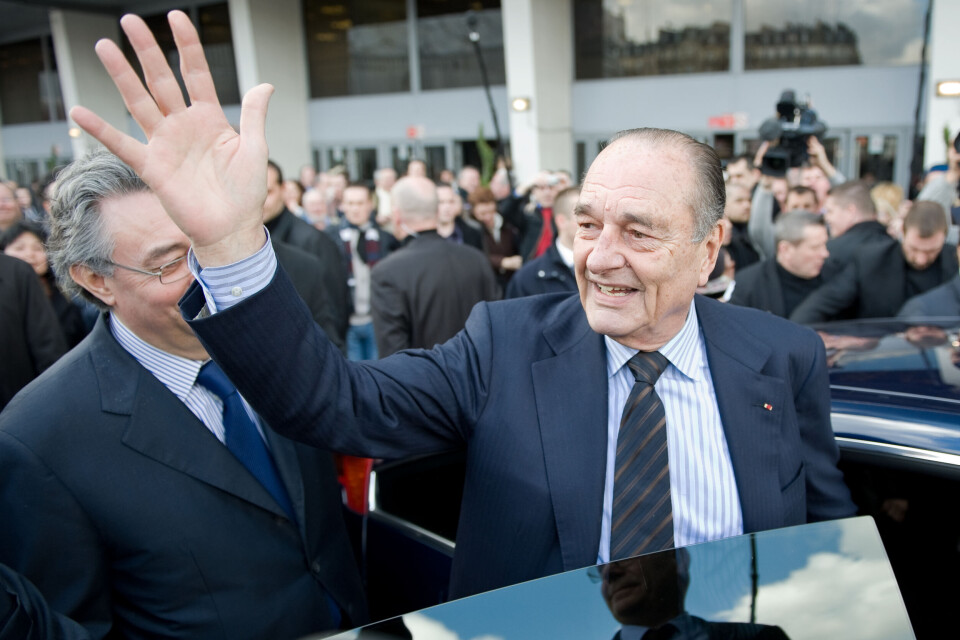-
How Lyon death is reshaping French politics ahead of 2027 elections
Columnist Simon Heffer says the killing of far-right student activist Quentin Deranque will have reverberations around Europe
-
Tipping in France: Are card machine tip requests going too far?
Payment terminals increasingly ask if customers want to pay an extra amount
-
French municipal elections: changes for 2026 and the issues at stake
Performance of far-right RN party and left-wing Greens and gender parity will be among key factors
Comment: Why don’t the French like the presidents they elect?
Most French presidents only survive one five year term before they are voted out, with two notable exceptions

This month we will learn who the French want to be their new president.
This is a strange sentence to write because all the evidence indicates the French do not actually like the presidents they choose. Or, at least, they fall out of love with them quickly: they vote someone into office, then cannot wait to boot them out.
Read more From Auriol to Macron: 10 French presidents of Queen’s 70-year reign
In the US, by comparison, two terms is standard for a president who does not do anything controversial, and in Britain an averagely decent prime minister will similarly win re-election.
In France’s Fifth Republic, however, one term is becoming the norm.
The French quickly tire of their presidents
President Macron’s two predecessors failed to raise enough enthusiasm to make a reappearance. Neither Nicolas Sarkozy nor François Hollande was invited to stay on by the electorate.
Not that they had done anything spectacularly wrong. The country just seemed tired of them. Sarkozy, as incumbent, lost to Hollande in 2012.
Hollande saw his popularity plummet towards the end of his mandate to the extent that polls suggested he would come fourth or even fifth in the 2017 race. He decided not to stand again. Before them, Jacques Chirac only got re-elected by default.
The hopeless division of the left (what’s new?) let the extreme right-wing Jean-Marie Le Pen through to the second round, forcing even hardened communists to hold their noses and vote for Chirac as the least offensive choice.
François Mitterrand is an exception to the rule, managing to win two elections by temporarily uniting the left, despite reneging on his socialist economic agenda, for which some people have not forgiven him.
Even ‘hero’ de Gaulle lost his shine
Overall, being president is a thankless job. The French grumble about their leaders and are loath to give credit.
You would think one president, at least, must have had a glittering career, being popular from beginning to end.
Charles de Gaulle is still the great right-wing hero, with a reputation not unlike Margaret Thatcher, as they both bequeathed their countries eponymous “isms”. De Gaulle posed as the saviour of his nation in 1940 and 1958, and became the undisputed father of the nation when he created the Fifth Republic. But his time in office was anything but happy.
He almost caused a civil war over Algeria at the beginning of his mandate, indirectly provoked the watershed riots of 1968, and was obliged to resign in ignominy when he staked his reputation on a referendum that he lost.
Read more: Comment: The Algerian War remains controversial in France 60 years on
By the end of his reign, the consensus, even among his supporters, was that he was too old, too self-centred, too authoritarian, too conservative, too much attached to another era to represent the French people.
Of all the Fifth Republic’s presidents, only Georges Pompidou is generally agreed to have done well, leaving his name on one of the great cultural institutions of Paris. He died two years before the end of his term in office and perhaps this saved his reputation.
The war in Ukraine could hand Macron elusive second term
Emmanuel Macron thought he had the curse of the presidency figured out when he decided to run in 2017. Do not take left/right sides, he reasoned; do not even have a proper political party when a personality cult will do; do look as though you are listening to the people before you use rationality to persuade them that you are right and they are wrong.
He was young and brimming with confidence, but no sooner had he got into the Elysée Palace than he was accused of acting like a new Napoleon, a Jupiterian god who did not care about the little people. His plans to reform France with reason provoked the long-running gilets jaunes protest.
Read more: Who are the gilets jaunes today?
He has managed to upset just about everyone over the last five years and is about to be judged for it.
There is, however, one variable that can upset politics as usual: a war which unites the French behind an incumbent who is seen to be doing his best to bring about peace. If Mr Macron does win a second term, it will be because he has managed to look statesmanlike during the current crisis.
Domestic political differences do not go away during a sticky international situation, but they are temporarily suspended. How long before the French go back to hating the president they have elected is anyone’s guess.
Related articles
‘We're proud to be voting in France for first time this election’
When will we know the results of France’s presidential election?
























